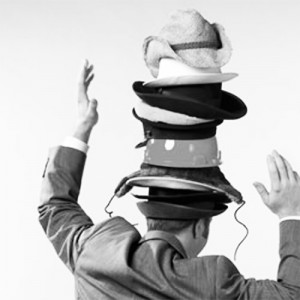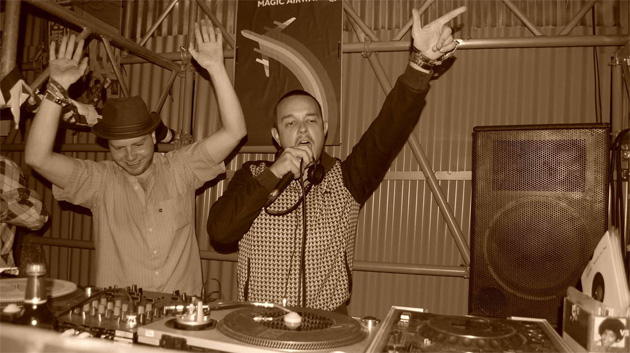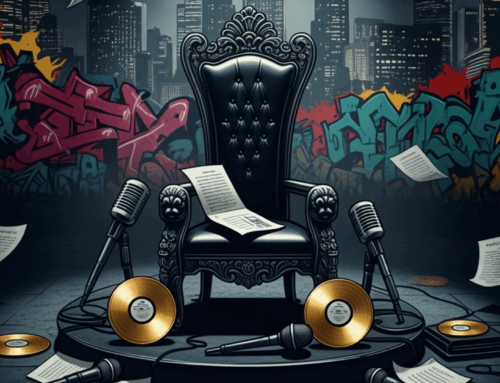 According to ehow.com, the duties of a DJ are limited to “providing entertainment”, “familiarity with equipment” and being “knowledgable of music”. I must have clicked the refresh button half a dozen times before I realized the entire post was fully loaded, and the internet is seriously lacking answers for the aspiring DJs of the world. It is true that these are the building blocks of being a DJ, but these are merely the tip of the iceberg.
According to ehow.com, the duties of a DJ are limited to “providing entertainment”, “familiarity with equipment” and being “knowledgable of music”. I must have clicked the refresh button half a dozen times before I realized the entire post was fully loaded, and the internet is seriously lacking answers for the aspiring DJs of the world. It is true that these are the building blocks of being a DJ, but these are merely the tip of the iceberg.
Years ago, a DJ’s sole responsibility was to play the house records, not to be confused with House music, that the venue maintained on site. DJs with voracious musical taste and a vested interested in crafting a style direction of their own formed personal collections. Before long, having a unique sound was the new standard by which DJs made their mark and set themselves apart from their peers. In more than a few cases entire clubs (read temples) were built around a few of these talented souls.
Building a unique record collection and learning the proper skills to DJ takes a lot of time, a lot of money, and a lot of patience. However, today anyone with a laptop, an internet connection and DJ controller can get started in the world of DJing. This reality has crowded the DJ pool, and now it seems that everyone has a “DJ night”.
This rise in competition has driven down the rates DJs can expect to charge for their services, and has made it that much more difficult to stand out. With little or no money to spread around, DJs must assume roles that were previously handled by promoters or the event team they would employ if they had the resources. Underground House music mainstay, and one half of Native Underground, Henry Maldonado says he is regularly filling the shoes of the “Organizer, accountant, host, staff manager, web-manager, sound guy, drunk-ticket dealer and shrink.” When asked about the division of his work as a DJ he says “If you count all the work leading up to the event then it’s 90% planning and 10% actual DJing. It’s over in an instant.” So before you are drowned by delusions of grandeur, take a look at the many hats DJs must wear.
Flyer Designer
Not everyone has a friend they went to school with who is good with Photoshop. DJs often have to make due by making their own promotional material. When I started, my background in design was essential to branding myself and my events. I ended teaching myself more than a few software programs in an effort to spread the word. Many have access to Photoshop, but I cannot stress just how much music fans will gleam from the look and feel of a promo. If your flyer looks crappy, people will expect the music to be too. In today’s interconnected cultural landscape, nothing stands on its own.
Web Designer
Having an online presence is key to establishing credibility. With so many DJ events to choose from, people want to sample your wares and get a sense of what you have to offer before they drop ten bucks at the door. Mystery is no longer on the radar of the conscious musical consumer.
Thankfully online platforms for showcasing your photos, music and ideas are more available than ever. Just to mention a few: Soundcloud.com, Mixcloud.
Promoter
UK House DJ Nic Fanciulli, for his contribution to White and Crisell’s On The Record: The Scratch DJ Academy Guide, says “The internet is the number one way to promote yourself as a DJ. Music is so changeable and disposable now that you’ve got to keep your online presence fresh with new podcasts, tracks, and updates to your web site.”
It is true, promoting appears to be exclusively virtual these days, but if you haven’t pounded the streets and pestered every local coffee shop or record store owner to let you place a stack of flyers near their entrance, then you can hardly call yourself a working DJ. For many, a printed flyer is old fashioned, but promoting is about covering all your bases not just spreading the word from the comfort of your nightgown. If you are fortunate to find someone to do the job for you without taking half of your earnings, more power to you, but don’t hold your breath.

Label Manager
For some, playing records and making music is not nearly enough musical control, or at least not nearly as efficient for building connections and establishing credibility. A handful of ambitious DJs have started their own labels and established themselves as members of the international jet set. A few names include BBC Radio 1’s Pete Tong who established FFRR Records, Electro House DJ and club promoter Steve Aoki who started Dim Mak Records in 1996, and DMC world champion turntablist A-Trak who started Fool’s Gold Records in 2007.
Producer
There was a time when spinning records was enough. These days DJs find themselves turning to the studio to get ahead. Samuel Walker, one half of the rising duo Walker & Royce, says he and his partner’s secret for standing out is “Mainly by writing our own music. Second, by trying not to be limited by genres or trends.” It may be hard to hear, but there are hundreds of phenomenal DJs who will never play outside their own home town because they refuse to switch hats.
Event Planner
There are a few different routes to climbing the ladder. Hustling your own gigs, and curating a party that will grow into a successful one that will get your name out there is a road often traveled. When you are tired of waiting for an invite to the ball, throw your own. A local rounder known for his eclectic sound and successful parties frequented by A-list celebrities, New York DJ mOma says “I negotiate deals with venues (DJ fees and bar percentages where applicable), book other DJs to rock with me, book hosts for the night if I think I need a lot of bodies to fill the space, create or oversee the creation of the flyers, blast the event to appropriate peeps via Facebook, Twitter, Instagram and email, compile guestlists etc…I’m part DJ, part event planner and it allows me create a platform for me to showcase what I can do on a regular basis.”
In examining his own experience, iconic New York DJ Justin Strauss, who has played at legendary clubs including The Mudd Club, The Limelight and The Tunnel and continues to hold it down at the best venues the Big Apple has to offer, remarks “If I am asked to play at a party, it’s nice to show up and just DJ, without having to worry about anything else, but if it is party that I am behind I get involved in everything from the flyer and graphics design, to helping promote. It’s just part of the business of being a DJ now, but can be exciting too.” In short, the yoke is heavy for an aspiring DJ, but the potential rewards, for those up for the challenge, are worth the effort.




